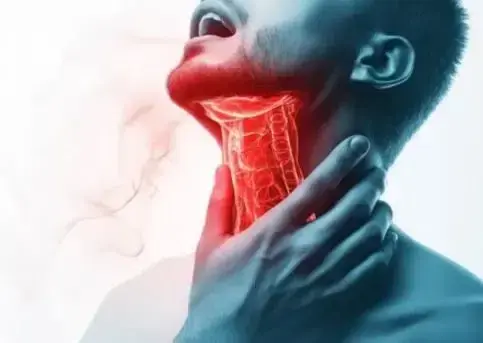Throat Cancer: What You Need to Know About Symptoms, Risks, and Prevention
Throat cancer is a serious condition that affects the throat, voice box, or tonsils. Recent studies have shed light on the connection between throat cancer and human papillomavirus (HPV), a common sexually transmitted infection (STI). Specifically, oral sex has been identified as a key risk factor for transmitting high-risk HPV strains, particularly HPV-16, which is linked to an increased risk of throat cancer. Here’s everything you need to know about throat cancer, including the signs, symptoms, and steps you can take to protect yourself.
The Link Between Oral Sex and Throat Cancer
Research has revealed that oral sex is a leading cause of throat cancer due to the transmission of HPV. High-risk HPV strains, such as HPV-16, are particularly associated with cancers in the oropharynx (the back of the throat, including the tonsils and base of the tongue). HPV-related throat cancers are becoming more prevalent, especially in individuals who engage in oral sex with multiple partners.
Common Signs and Symptoms of Throat Cancer
Throat cancer symptoms can vary depending on the location and stage of the disease. Early detection is essential for effective treatment. Here are some of the most common symptoms:
- Persistent Sore Throat: A sore throat that doesn’t improve over time could indicate throat cancer.
- Difficulty Swallowing (Dysphagia): A feeling that food is stuck in the throat or trouble swallowing may be a sign.
- Hoarseness or Voice Changes: Changes in your voice, such as persistent hoarseness, can be an early symptom.
- Lump in the Neck: Swelling or a lump in the neck may indicate that the cancer has spread to the lymph nodes.
- Chronic Cough: A cough that lasts for weeks, especially if it’s accompanied by blood, requires attention.
- Ear Pain: Persistent ear pain or a sensation of fullness in the ear can be linked to throat cancer.
- Unexplained Weight Loss: Sudden weight loss without changes in diet or exercise can be a red flag.
- Breathing Difficulties: Difficulty breathing or wheezing can occur as the tumor grows and affects the airway.
- Bad Breath (Halitosis): Persistent bad breath that doesn’t improve with dental hygiene could be a symptom.
- Fatigue: Unexplained tiredness can be related to cancer or its impact on overall health.
When to See a Doctor
If you experience any of the above symptoms for more than two weeks, it’s important to consult a healthcare provider. While these signs can also be caused by less serious conditions, such as infections or allergies, it’s critical to rule out cancer through a proper evaluation. Early diagnosis can lead to better treatment outcomes.
Prevention and Risk Reduction
While throat cancer is a serious condition, there are proactive steps you can take to reduce your risk:
- HPV Vaccination: Getting vaccinated against HPV can significantly lower the risk of developing HPV-related cancers, including throat cancer.
- Safe Sexual Practices: Using protection during oral sex and limiting the number of sexual partners can reduce the risk of HPV transmission.
- Avoid Tobacco and Excessive Alcohol: Smoking and heavy alcohol consumption are major risk factors for throat cancer, so avoiding these can greatly lower your chances of developing the disease.
- Regular Check-ups: Routine medical and dental check-ups can help with early detection. Dentists, in particular, may notice early signs of oral cancer during regular exams.
Conclusion: Early Detection Saves Lives
Throat cancer is a serious but preventable condition. By being aware of the symptoms and understanding risk factors, such as HPV, you can take steps to safeguard your health. Getting vaccinated, practicing safe sex, avoiding tobacco and alcohol, and attending regular check-ups are all vital for reducing your risk. If you have concerns about your symptoms or risk factors, don’t hesitate to consult a medical professional. Early diagnosis and intervention are key to effective treatment and recovery.








